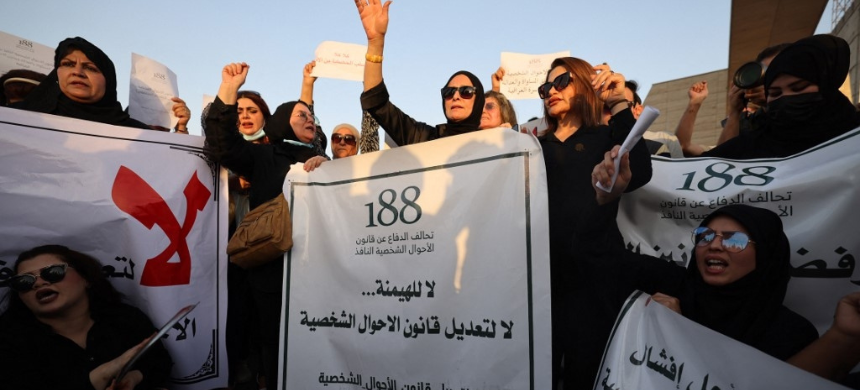Iraq is considering a controversial proposal to reduce the legal age of consent from 18 to 9, potentially allowing men to marry young children. The proposed amendment also seeks to strip women of their rights to divorce, child custody, and inheritance.
This proposed change is part of a broader effort to amend Iraq’s “personal status law,” which has governed family matters since 1959. The law, initially seen as one of the most progressive in the Middle East, applies to all Iraqis regardless of religious sect. The amendment would reduce the legal age for marriage and remove women’s rights in key areas like divorce and inheritance.
Read More: Hania Aamir Shares Details of Her Wedding Plans
The political coalition in power, made up of conservative Shia Muslim parties, argues that the change aligns with their interpretation of Islamic law and is aimed at protecting young girls from “immoral relationships.” The second reading of the amendment was passed in September, and with the coalition’s strong parliamentary majority, the amendment may soon become law.
Although attempts to change the personal status law failed in 2014 and 2017 due to backlash from Iraqi women, the current push has gained significant momentum. Dr. Renad Mansour from Chatham House noted that the amendment is part of a broader political move by Shia Islamist groups to consolidate power and regain legitimacy.
Critics argue the amendment would effectively eliminate critical rights for Iraqi women. Human rights experts express concern that the legislation could increase the rates of child marriage, already high in Iraq, especially in poor and ultra-conservative Shia communities. A loophole in the current law has allowed religious leaders to officiate marriages, some involving girls as young as 15, bypassing official court processes.
Activists fear the amendment will legitimize these religious marriages and expose young girls to greater risks of sexual and physical violence, as well as denial of education and employment opportunities. The proposed change has ignited protests and sparked outrage on social media, with women’s rights groups accusing the government of attempting to legalize child marriage.
The amendment has also raised fears of deepening sectarian divisions in Iraq, with the proposed legislation potentially giving citizens the option to choose between secular law and religious law, depending on their sect. This would place men in control of decisions in marriage disputes, undermining women’s rights and equality before the law.
Iraqi women’s rights activists, including Athraa Al-Hassan, have strongly opposed the changes, warning that they would reverse the country’s progress and violate its constitution. They stress that Iraq must remain a civil state, not one governed by sectarian or religious rule.











